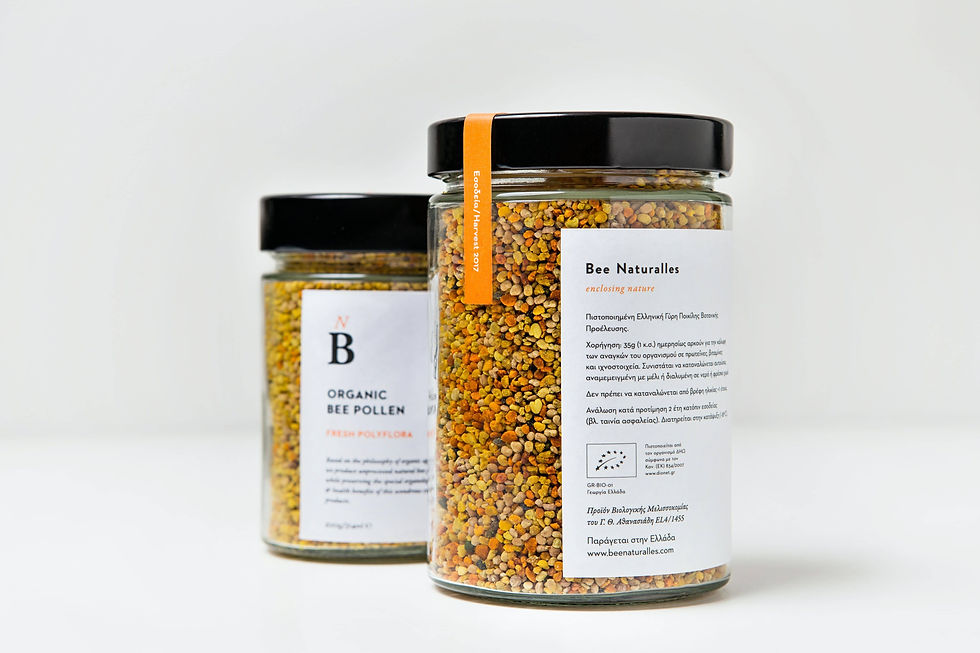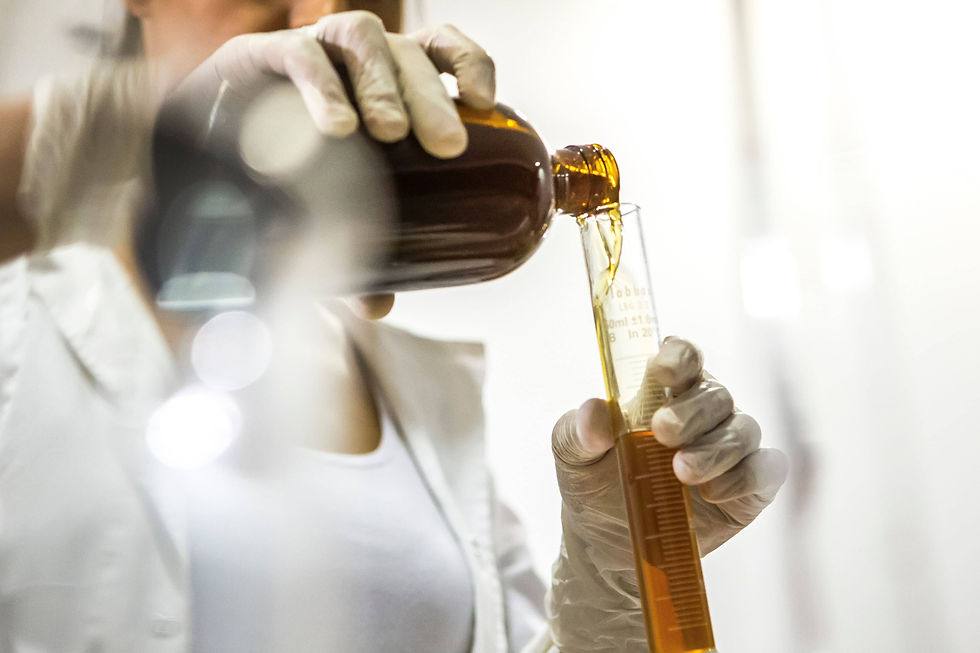How Powerful is Honey?
- Jul 25, 2021
- 4 min read
Updated: Oct 30, 2024
Everyone knows that honey is an irreplaceable food in the winter days when you need to raise your immunity and combine it with lemon and cinnamon in teas, natural drinks, salads, and even in desserts. Is there, again, someone who has not used propolis for disinfection of the throat or oral cavity, while pollen and royal jelly are products that everyone has heard about and probably only used occasionally. Or, better said, he used them correctly and in the right doses.
Products – honey
How much, in fact, do you know about these powerful results of bee work and effort?
When you learn more about them, how curative and useful they are for human health, you will want to replace traditional medicines with them more often.
HONEY
By definition, honey is a thick, sweet and syrupy substance, i.e. a product of honey bees, which is obtained from fruit and other juices processed in the stomach of bees. The bees put it in a covered honeycomb, where it turns into honey by chemical reactions.
Honey contains minerals (as many as 37), almost all amino acids, an abundance of vitamins, organic acids and aromatic substances.
It should be noted that one bee, in order to produce 1 kg of honey, needs to visit about 10 million flowers, which is about 120 thousand flights.
Healing properties of honey:
Improves immunity
Helps heal wounds and burns
An excellent source of energy
Relieves cold and flu symptoms
It regulates blood sugar levels (however, diabetics should use it with caution)
POLLEN
If you have so far consumed pollen by taking it in a dried form with a spoon, chewing it (or grinding it finely), swallowing it and then drinking a glass of water, or maybe even stirring it in water. Then unfortunately you have not used any of the useful ingredients of pollen in your body.
Why?
Since the healthiest is raw pollen, or dried and then immediately frozen, and which is left to swell in water for several hours before consumption, you got the answer to the question – how to use pollen. It is necessary for it to stand submerged, and for the grains to burst after swelling, because their celluloid membrane is not suitable for our digestive system. Even in yogurt, it will dissolve much better than in water, since it is known that lactic acid dissolves the pollen membrane more easily.
What, exactly, is pollen?
It is a mix of proteins, fats, minerals, carbohydrates, amino acids, enzymes, essential oils and an abundance of vitamins (B1, B2, B3, B5, B6, H – biotin, E, C, D, A, rutin, folic acid.
Due to its exceptional composition, pollen has many benefits and has a positive effect on:
Anemia
Premature aging
Arterial hypertension
Atherosclerosis
Digestive disorders
Loss of appetite and lack of work ethic
Disorders of the stomach
Convalescents after radiation or patients who have used excessive doses of antibiotics
Decreased brain activity
Developing children
Problems and diseases of sight
Cardiovascular diseases
Prostate complication
Raising the immune system
PROPOLIS
It is a mixture of wax and sticky substances that bees collect from the buds of perennial plants, and they use it to coat the ceiling of the hive, thus disinfecting it. Also, propolis strengthens honeycombs and closes cracks.
One of the most important ingredients in propolis is bioflavonoids, which are antioxidants. In addition to them, there are minerals, vitamins, aromatic and essential oils, pollen.
Propolis has antibacterial, antiviral, antifungal, antiseptic effects, and it also has the function of a local anesthetic (reduces pain).
Precisely because of the incredibly high degree of effectiveness, propolis is recommended in the following situations:
In case of colds, flu or bacterial infections of the upper respiratory tract
In case of bad breath, inflammation of the throat or oral cavity, or in case of canker mouth.
If there are cuts, burns, or if wounds, herpes and eczema are present
In periodontitis and periodontitis
In case of gastritis and colitis
With increased vaginal secretions
As a prevention of inflammation of the ear, nose, throat, oral cavity
To strengthen immunity
Royal jelly
It is formed as a product of worker bees aged 4–12 days and serves primarily for feeding larvae from which queens, worker bees and drones will develop. For the first 3 days, all larvae receive royal jelly, and after that it becomes food only for the future queen. Thanks to the diet, the queen reaches maturity five days before the other worker bees, is twice as big and heavier than them, lives 5–6 years, while ordinary worker bees only 2–3 months.
Since it is food for the queen, royal jelly is rich in pheromones, and it is extremely beneficial for fertility in women, i.e., potency in men (it regulates the hormonal balance in the body). It contains an abundance of proteins, minerals, vitamins – all in all, over 70 known elements.
Used in the treatment of:
Arthritis and rheumatism
Elevated cholesterol
Chronic fatigue
Impotence and infertility
Weak immunity
Anxiety and depression
High blood pressure
Skin problems
Diabetes
Chronic infections
Overweight
Insomnia
Premature aging
Problems with memory and concentration
Menopause
Cancer
Inflammatory processes
Ulcers, stings, fungal diseases
In terms of dosage, royal jelly should be used in a fresh state of 200-600 mg, or 130-200 mg in a lyophilized state, when it comes to prevention. Therapeutic doses, on the other hand, are significantly higher. It is advisable to use it only under the tongue during use, so that it dissolves spontaneously and slowly in the mouth.
#powerful #honey #health #and #Alternative #medicine #care #cure #immunity #boost #natural #blog #coffeetimelena
Use the contact form for questions or advice.
I would be happy if you would comment on my recipes and put like.


































































































































































































Comments